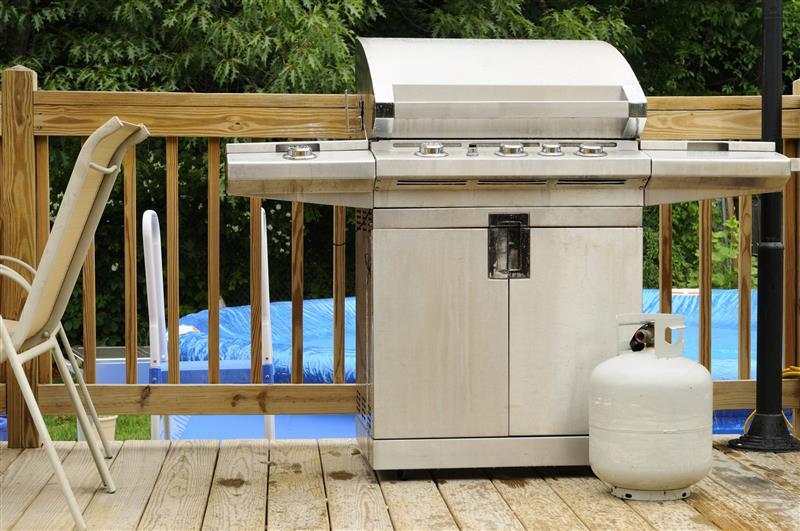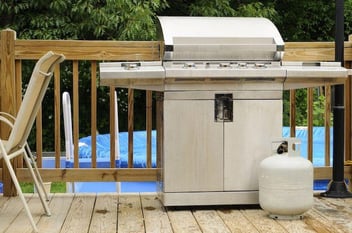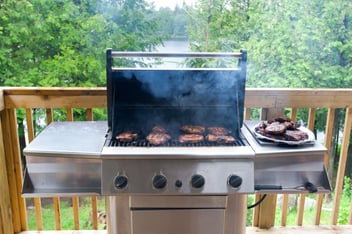Do I need a permit to install or hook up a gas barbecue?
It depends. If you are purchasing a portable gas barbecue from the store and you have an existing gas hook up connection box, you don’t need a permit. However, built in barbecues such as those being installed in outdoor kitchens require a gas installation permit. Installation of gas piping to support the operation of a barbecue is also regulated work and must be done under the appropriate installation permit. Make sure all appropriate permits are pulled before the work gets started.
What do I need to know about placement of my barbecue?
Whether you are installing a portable barbecue or having a custom one built, barbecues are ideally located on a flat, sturdy, non-combustible surface such as concrete or patio stones.
Avoid placement on wood decks, or near vinyl siding or awnings. For installation and operating instructions refer to the appliance manufacturers certified installation and owner’s manual If you live in an apartment or strata, make sure the type of barbecue you have is permitted. Some multi-family dwellings do not permit barbecues due to risk of fire.
Also, remember that barbecuing produces carbon monoxide (CO) which can be harmful and deadly. For this reason, never use a barbecue in any enclosed or partially enclosed area such as a garage or porch. Keep it in a well-ventilated area, away from any open windows or doors to avoid carbon monoxide from entering your home.
What are the most common barbecue-related risks?
Some of the hazards we have seen have been related to:
- Gas barbecues placed inside combustible enclosures or proper clearances to combustibles not maintained during use.
- Using dirty or poorly maintained barbecues, which results in a fire hazard.
- Old propane tanks being used that have surpassed their service life. Propane tanks must be inspected and requalified every 10 years – it is against the law to fill an outdated cylinder.
- Gas supply hoses that have cracks or abrasions, loose or improper connections resulting in leaks.




